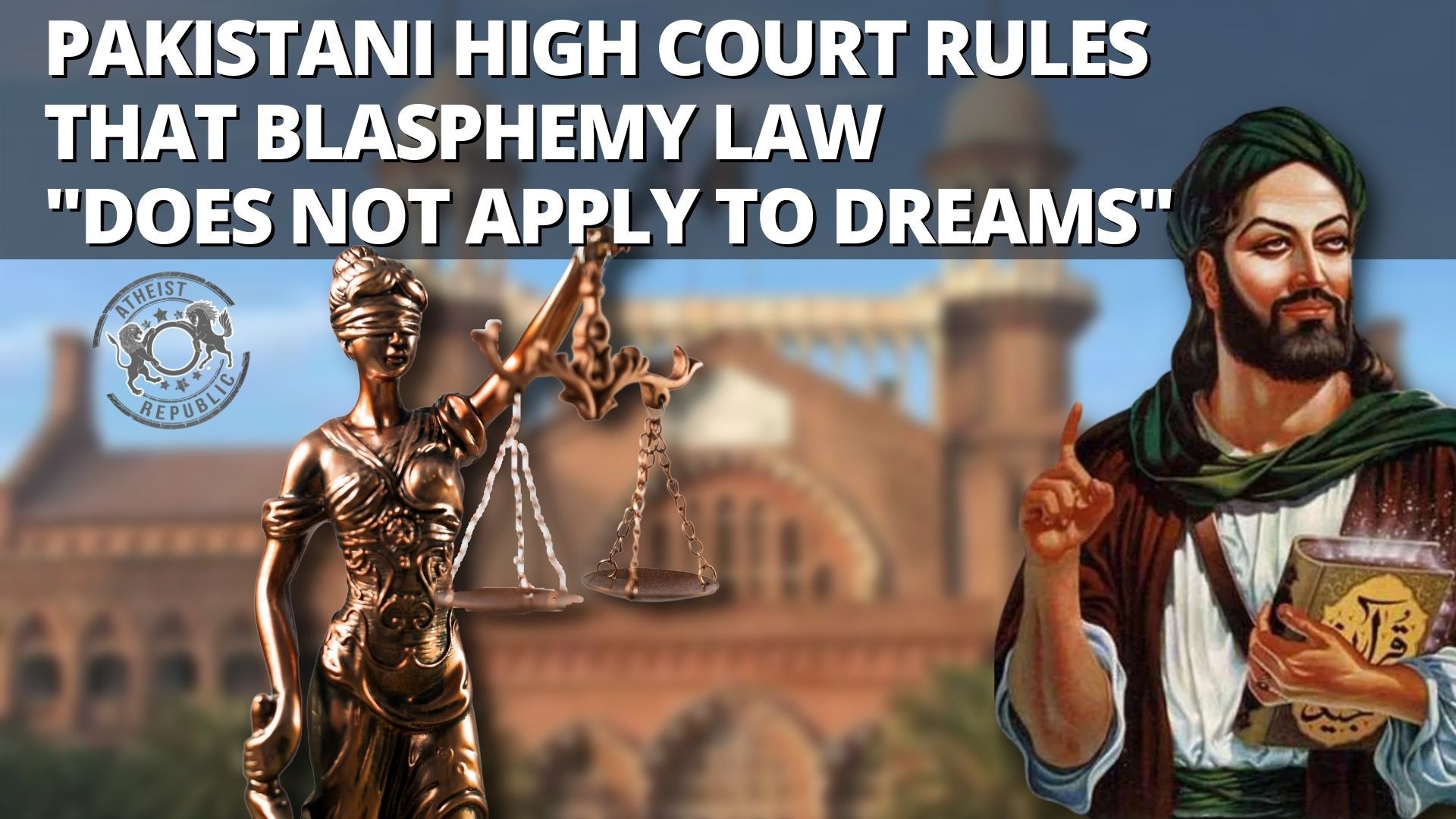
The Lahore High Court (LHC) declared that it would not apply the blasphemy law regarding dreams. Individuals can neither be judged for what they see in their dreams nor for sharing their thoughts, visions, and emotions with others during those times.
A person cannot be prosecuted under blasphemy law for what he sees in his dreams or for sharing with others his thoughts, visions, or emotions he has during those times, a provincial court in Lahore said. https://t.co/ngn3k5f9iX
— Zia Ur Rehman (@zalmayzia) November 13, 2022
A First Information Report (FIR) registered under Section 295-A of the Pakistan Penal Code (PPC) by the Saddar Police Station of Mianwali against the petitioner was declared invalid by LHC Judge Mr. Justice Tariq Saleem Sheikh.
In August 2021, the petitioner had blasphemous ideas, which he started spreading to the general public, said the complainant, who before was a member of the Mianwali district council. He (the complainant) added that the petitioner held the claim that he could fly and saw Allah and various companions of the Holy Prophet Muhammad (PBUH) in his dreams. He made similar claims in front of two witnesses for the prosecution.
Additionally, according to the complainant, such dissemination hurt the religious feelings of the Muslim community and might spark violence.
However, the First Information Report (FIR) was deemed deceitful and politically influenced by a counsel for the petitioner. The FIR did not specify what the petitioner voiced as sacrilegious ideas. The counsel said that the petitioner is only accused of telling a group of people about his dreams where he saw God and some holy figures. "Such narration is not an offense under Section 295-A PPC," the counsel added.
In response, the counsel for the complainant used the statements of the law officer who stated that the petitioner's blasphemous thoughts and wicked beliefs should not be ignored and that doing so would mean forbidding their freedom of speech. He argued that the petitioner intentionally created fictitious tales with the devious purpose of offending the religious sentiments of the community.
After observing the offense under Section 295-A of the PPC and examining the FIR, Justice Sheik said, "we find that the offense under section 295-A PPC is not made out". The judge also reviewed section 298 of the PPC (uttering words etc., with deliberate intent to wound religious feelings). He found that it was inapplicable to the current case, judging by the facts and the situation.
Before discussing the inherent rights and wrongs of the matter, the judge also clarified that there was no accusation on the petitioner to offend any group of people or their religion and religious statements. "There is no evidence to suggest that the petitioner intended to offend or harm the religious sensibilities of the complainant or any other person with his statements," said the judge.
The judge noted the part where the petitioner is being prosecuted for stating that he could fly and for having several dreams where he met God and other religious figures. The judge said in many blasphemy cases, the accused is usually associated with having mental health disorders.
The judge said the law in Pakistan protects people with mental health conditions or illnesses. Section 464 CrPC, rules out that an individual with an "unsound mind" who cannot assist their defense cannot be put on a trial.
After allowing the petition against the FIR, Justice Sheik ordered the LHC registrar to send a copy of his judgement to the Punjab inspector general of police. He expects the investigating officers to follow the instructions.
